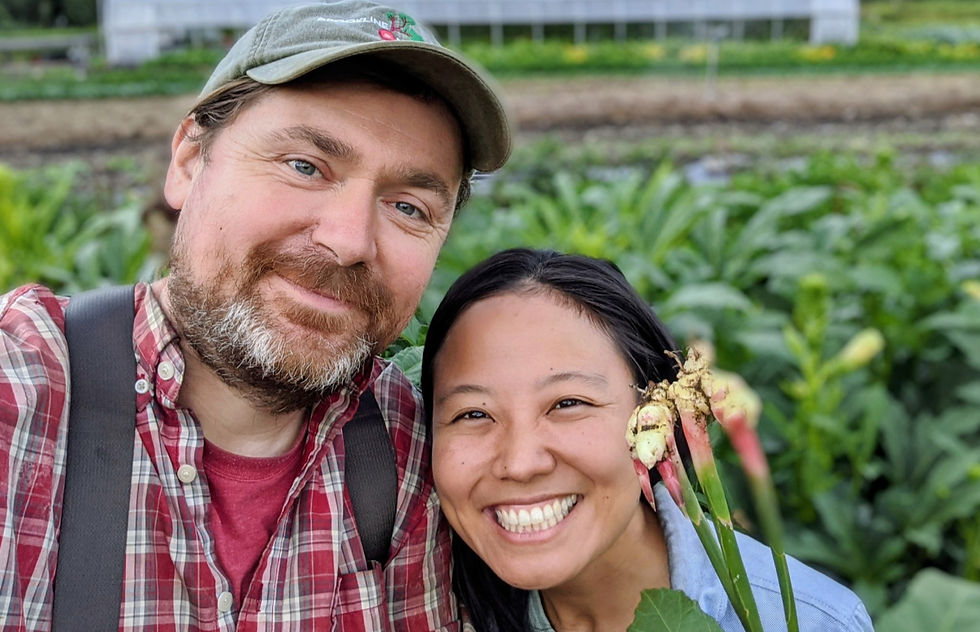Assawaga Farm
- Sep 29, 2025
- 2 min read
Certified Organic Farmers Yoko Takemura and Alex Carpenter of Assawaga Farm are located in Putnam, Connecticut.

Originally from Japan, Yoko lived and worked in various countries until moving to New York City to pursue a master’s degree in environmental sustainability. While living in Brooklyn, NY, Yoko’s participation in a local community garden allowed her to discover the wonders of growing vegetables. Not long after, Yoko applied for apprenticeships on organic vegetable farms outside the city, and ended up training and gaining a wealth of knowledge and experience farming organically at Riverbank Farm
in Roxbury, CT.
Alex Carpenter spent several years backpacking around the world before graduating with a degree in human ecology. During those travels, he became more aware and interested in agriculture and food systems. This interest soon transformed into a dream of growing clean, sustainable food.
In June of 2016, Yoko and Alex purchased raw land and founded Assawaga Farm. The word "assawaga," meaning "place between" or "halfway place," is the original Nipmuc name for the river now commonly known as the Five Mile River. Being embraced by the Assawaga River to the west and the Mary Brown Brook to the east, Assawaga Farm is quite literally the "place between", with the confluence of the waterways promoting a wealth of fertility and biodiversity.
Today, Assawaga Farm is a certified organic farm growing vegetables, herbs, flowers, and fruits with an emphasis on Japanese varieties. For decades, the fields at Assawaga were used for hay, so there has been no application of chemicals for as far back as the history of their land can be traced.
Being certified organic means that Assawaga Farm utilizes natural processes and materials to grow their crops while promoting ecological balance and preserving biodiversity. Yoko and Alex state, "We’re committed above and beyond the guidelines for organic certification through practices such as minimizing the use of fossil fuels and plastic, avoidance of even organic pesticides and installing perennial wildlife and pollinator habitats. We’re also always looking for ways to reduce our ecological footprint and encourage as much resource recycling as possible on the farm-- for example, by making our own compost and sourcing additional materials such as leaves from within our community."
We believe in creating and maintaining fertility from within our farm as much as possible, through cover crops, compost, vermicompost, extracts, and natural mulches. We are stewards of the land and as such we strive to keep the land productive for many future generations to come.”

